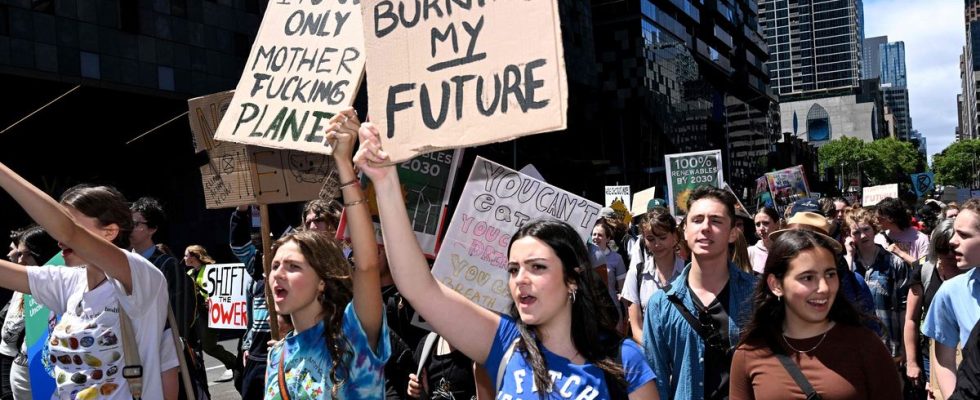The vast majority of Europeans believe that the ecological transition will only happen if inequalities are addressed. 68% say that a carbon neutral economy “can only be achieved if we tackle inequalities at the same time”, according to a survey carried out by BVA for the European Investment Bank (EIB). ), published Tuesday.
32% think that the transition must take place “even if this means that inequalities risk increasing”, indicates this study carried out by the BVA institute from August 7 to September 4. Overall, the increase in the cost of living is by far the main concern of Europeans (cited by 68% of respondents in the EU, and 70% in France), out of a list of ten possible concerns with climate change, environmental degradation, large-scale migration, access to health, income inequality, unemployment, terrorism, political instability and cyberattacks.
Sharp decline in optimism
Climate change comes in second place (cited by 45% of respondents in the EU, and 39% in France), and environmental degradation in third place (28% on average in the EU, 22% in France). The survey also shows a clear decline in optimism in Europe about the socio-economic impact of the energy transition and expected job creation.
Thus, this year, 51% of Europeans surveyed say they expect job creation from the transition, while they were 56% in 2021. The biggest gaps are found in northern countries like the Netherlands, where only 42% of those questioned say they expect an improvement in employment today due to the transition, compared to 62% in 2021. In Germany too the survey shows a sharp decline in optimism, to 41% compared to 54 % in 2021.
The French more serene
In France, on the other hand, optimism about employment linked to the climate transition is improving slightly: 57% of French people believe that the measures adopted to combat climate change will rather be a source of benefits, particularly in terms of job creation. employment, compared to 43% who think the opposite. In 2021, when the EIB survey asked the same question, only 55% of French people expected job creation.
The study was carried out among 30,245 people in total, in 35 countries including the 27 of the EU, using the quota method. In France, and in most EU countries, at least 1,000 people were interviewed. In smaller countries like Cyprus, Estonia, Lithuania, Luxembourg, Slovakia and Slovenia, the samples were between 444 and 513 respondents, and 210 in Malta.

